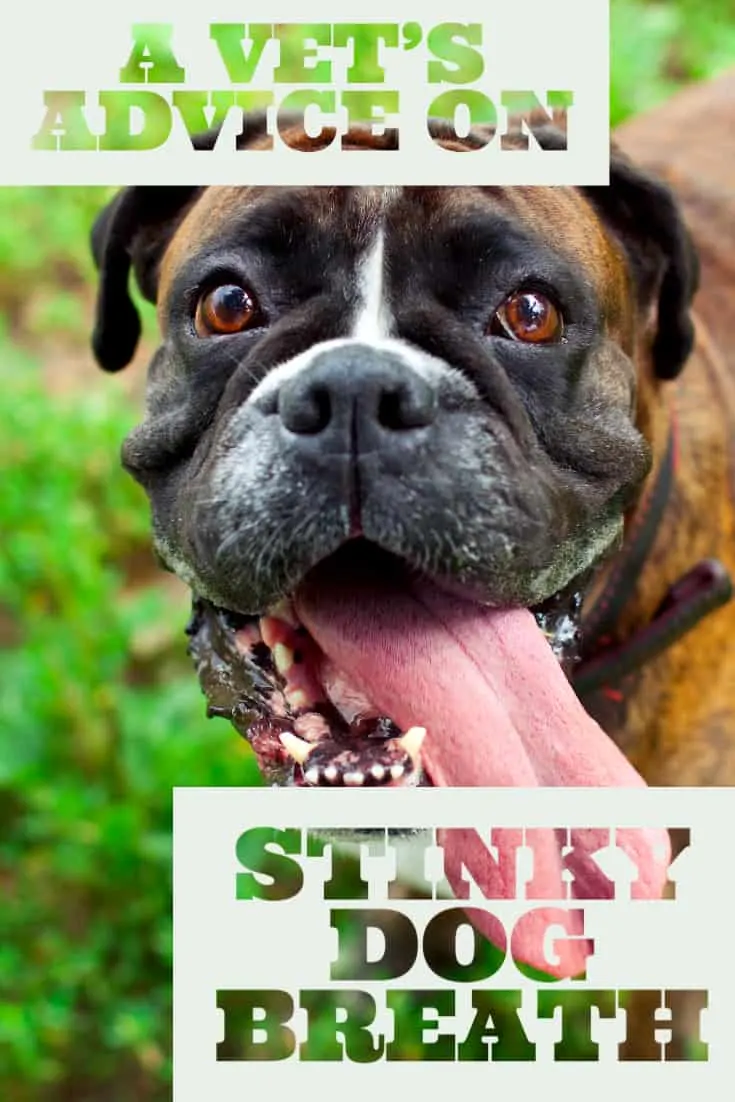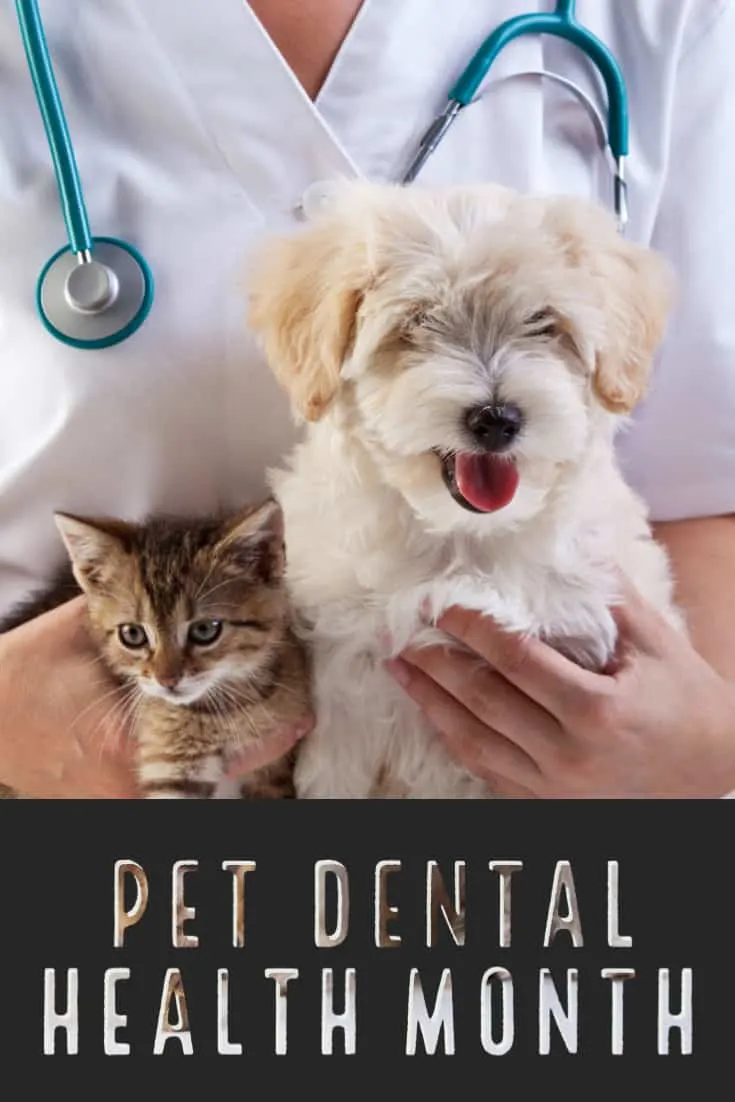February marks Pet Dental Health Month — the perfect time for those who are encountering stinky dog breath to get serious about their dog’s dental health.
You’ll often find veterinarians offering specials on dental checkups and cleanings during the month, as well as discounts on dog dental products, great for addressing the problem of smelly dog breath and problems that can be much more serious.

Why Dog Dental Health Is Important
“It’s estimated that by the age of two 80 percent of dogs and 70 percent of cats have some form of periodontal disease,” explains Dr. Larry Kornegay, president of the American Veterinary Medical Association (AVMA).
“Periodontal infections have been linked to diabetes, heart attacks, strokes, kidney disease and other life threatening disorders. During Pet Dental Health Month, the AVMA is encouraging all dog and cat owners to take steps to control plaque on their pet’s teeth and see their veterinarian for dental checkups.”
Banfield Veterinarian Dr. Andrea Sanchez explains that dog dental health is no laughing matter.
5 Tips to Keep Your Dog’s Teeth Healthy Every Day
National Association of Professional Pet Sitters, a nonprofit organization comprised of in-home pet care professionals, on keeping your dog’s teeth healthy every day.
- Partner – Work with your veterinarian to develop proper at-home dental treatment, such as brushing and teeth-friendly chewable items.
- Examine – Regularly examine your pet’s teeth and gums, noting any changes in color, redness, or sensitivity.
- Smell – Have you noticed a sudden change in your pet’s breath? Foul breath can often signal infection, and it’s important to schedule a veterinarian appointment soon to explore the source.
- Watch – Observe your pet’s behavior during meal time. Does he or she show signs of pain while chewing?
- Schedule – Plan regular visits to the veterinarian for dental cleaning.
A Veterinarian Discusses Stinky Dog Breath

In honor of National Pet Dental Health Month, we have a special guest post from Dr. Heather Loenser.
I’d love to know what the most common question is for a pet owner to ask their veterinarian. In my case, besides “Why does my dog eat [fill in the blank]?” I must get asked by almost every owner, “Doc, seriously, what can I do about my pet’s smelly breath?” This informal survey of mine jives with one performed by The Pert Group, a leading market research firm, who found that almost two-thirds of dog owners state their dogs have bad breath, and as many as one-third of them avoid close contact with their dog because of the smell.
Unfortunately, besides complaining about it, too many pet owners do nothing about their pet’s bad breath.
What I wish more of them knew is that bad breath is often one of the first signs of dental disease, which affects a staggering 78 percent of dogs and 68 percent of cats over the age of three.
Dental disease can include swollen, bleeding gums, broken or infected teeth, or even cancer. Ignoring the smell can really have serious consequences.
Dental disease in pets, as in humans, is caused by the build-up of plaque around the teeth. Bacteria breed in the plaque and cause infection. The infection results in redness, swelling, bleeding and often throbbing toothaches and eventually tooth loss.
As if that’s not enough suffering for a beloved pet, chronic inflammation can lead to other serious illnesses, including heart or kidney disease. What starts as poor oral hygiene can end up shortening the life of a pet.
Veterinarians are so passionate about educating pet owners about dental disease, that we’ve dedicated the entire month of February to National Pet Dental Health Month. Veterinarians and professional organizations such as the American Veterinary Medical Association and the American Animal Hospital Association recommend that pets receive an annual physical exam, as well as regular professional dental cleanings under anesthesia.
For pet owners who are nervous about general anesthesia, I often remind them that the benefits of a healthy mouth often outweigh the risks of anesthesia. As the animal sleeps, we can thoroughly examine and clean the pet’s teeth, look for potential problems and treat present disease.
For more serious oral conditions, I refer a pet to a veterinary dental specialist who has received rigorous training and is board-certified by the American College of Veterinary Dentistry.
In addition to professional cleaning, the best way to prevent dental disease in pets is to maintain regular oral hygiene. While it may be time-consuming, brushing a pet’s teeth daily is the cornerstone of this process, just as it is with human dental health.
There are many great tasty, pet-friendly toothpastes, toothbrushes and dental diets that have been used for years to accomplish just that.
So now you know how to answer a question that so many pet owners ask me. To keep your pet’s breath smelling clean and more importantly, to maintain their overall health and quality of life, talk to your vet, schedule a dental cleaning, and promise to show your love for your pet every day with proper oral care.
Pin it to remember Pet Dental Health Month

- How to Calm a Dog During Fireworks - June 20, 2024
- Taking Your Dog to See Santa: Tips for a Jolly Visit! - December 7, 2023
- The Pug Dog Price Tag: What You Need to Know Before You Get Your Pug - September 7, 2022
